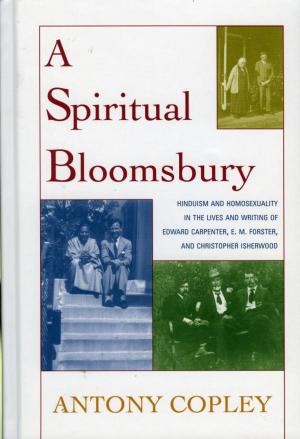Relativism, Alternate History, and the Forgetful Reader
Reading Science Fiction and Historiography
Fiction & Literature, Literary Theory & Criticism, Science Fiction| Author: | Derek Thiess | ISBN: | 9780739196182 |
| Publisher: | Lexington Books | Publication: | November 25, 2014 |
| Imprint: | Lexington Books | Language: | English |
| Author: | Derek Thiess |
| ISBN: | 9780739196182 |
| Publisher: | Lexington Books |
| Publication: | November 25, 2014 |
| Imprint: | Lexington Books |
| Language: | English |
The writer of alternate history asks “what if?” What if one historical event were different, what would the world look like today? In a similar way, the postmodern philosopher of history suggests that history is literature, or that if we read certain historical details differently we would get a distinctly different interpretation of past events. While the science fiction alternate history means to illuminate the past, to increase our understanding of past events, however, the postmodern approach to history typically suggests that such understanding is impossible. To the postmodern philosopher, history is like literature in that it does not offer the reader access to the past, but only an interesting story. Building on criticism that suggests personal psychological reasons for this obscuring the past, and using a literary theory of readership, this book challenges the postmodern approach to history. It channels the speculative power of science fiction to read the works of postmodern philosophy of history as alternate histories themselves, and to map the limits and pathology of their forgetful reading of the past.
The writer of alternate history asks “what if?” What if one historical event were different, what would the world look like today? In a similar way, the postmodern philosopher of history suggests that history is literature, or that if we read certain historical details differently we would get a distinctly different interpretation of past events. While the science fiction alternate history means to illuminate the past, to increase our understanding of past events, however, the postmodern approach to history typically suggests that such understanding is impossible. To the postmodern philosopher, history is like literature in that it does not offer the reader access to the past, but only an interesting story. Building on criticism that suggests personal psychological reasons for this obscuring the past, and using a literary theory of readership, this book challenges the postmodern approach to history. It channels the speculative power of science fiction to read the works of postmodern philosophy of history as alternate histories themselves, and to map the limits and pathology of their forgetful reading of the past.















